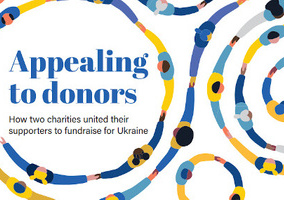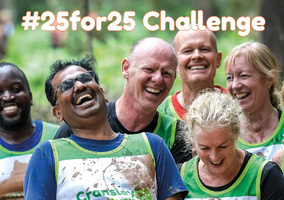Major donor fundraisers should be looking at generation Z and millennials as their next prospects. But, how do we engage this generation with philanthropy and why are they such hot prospects?
Across the charity sector, millennials and generation Z are reshaping how we fundraise. And, for partnerships and philanthropy fundraisers, this next generation of major donors looks to be the most noteworthy group of philanthropists in history. Over the next 25 years, this group is likely to inherit unprecedented wealth, and as they are less likely than their parents to marry and/or have children, their disposable income is likely to be enormous. As a result, our next generation of philanthropists is key to helping charities achieve objectives through long-term, high-level giving.
Inexperienced givers
Although this younger generation has the potential to be our most important cohort of donors, it must be recognised that this group is currently very inexperienced when it comes to philanthropy. They look to charities as advisers and teachers who will guide them in their decision-making. Common themes appear around how to give, tax efficiency and how to make the biggest difference with their gift.
Another challenge many charities will face is the pace which generation Z and millennials expect charities to work. Gen Z, in particular, have made the world move faster and charities still need to catch up. This causes frustration among this young community as their breakneck speed of life, decision-making and work is stultified by the almost, in their eyes, snail’s pace of charities. Charities need to work out how to maintain engagement while figuring out how to increase pace.
It’s a common misconception that generation Z, in particular, want to change the world through their giving. Naturally, they do want change. However, they look for this on a smaller scale, where they and their donation will make a bigger impact. As such, these generations focus on fewer charities, gravitate towards smaller charities, and want to help individuals so they can see results quickly. This, of course, ties in with their need for a quick turnaround and working at a fast pace.
One thing to consider when working with this generation is their preference to behave as a cohort. We see many examples of Gen Z and millennials giving as a community, such as with Unicef’s NextGen Programme. This allows for leveraging impact with many hands making light work. Furthermore, working together as a group, for example, in giving circles, allows these individuals to learn from one another and increase their philanthropic knowledge.
Charity activism
We can’t speak about this new group of prospects without the words “charity” and “activism” in the same sentence. These are incredibly aligned for the next generation and this must be considered in your strategy for approaching and cultivating prospects.
Along with activism, there is also a need from young philanthropists to volunteer. Someone who knows this well is Victoria Roe, senior philanthropy manager at Unicef. Since 2020, Roe has led the Unicef NextGen programme in the UK. Unicef NextGen is a global Unicef offering for young leaders who pledge their financial resources, time, networks and skills to Unicef’s cause. She explains: “To create a home for young philanthropy within your organisation, you need to have a strategy in place for channelling this audience’s volunteer energy. These donors often see their knowledge and experience as one of their greatest assets – and certainly don’t want to be seen as just writing cheques.”
But what does this mean for charities? Roe underlines that young philanthropists like to offer “360 value” to an organisation – so it’s not just about financial gifts, but also working to unlock their personal networks, corporate partnerships and using them as advisers/sounding boards. Consequently, charities need to bear in mind what this means from a resource perspective.
Following on from this, as part of your next-generation strategy, this group’s networks and connections must not be overlooked. Angharad Hughes, philanthropy manager at London School of Economics, says: “My biggest success to date is working closely with a handful of key figures who have generously opened their networks and passionately encouraged their peers to give. Next-generation philanthropists give for impact, and as a cohort they can achieve much more.”
Making contact
So how do we meet this next generation? Like all prospects, they connect with charities in three ways: events, activities and work.
Connecting with this group through work is an area charities can be in control of and highlights the need for, and importance of, corporate fundraising. Major donor fundraising is collaborative and this is no different when it comes to our next generation of philanthropists. Charities should begin to look strategically at companies with a high number of young professionals who will quickly move up the career ladder.
Industries such as finance, legal, tech and engineering provide a wide pool of next-generation prospects who want to become involved in charitable activities but might not have been introduced to a charity of choice yet. Connecting with these young prospects at work allows you to build a relationship with them from a very early stage, and provides them with an opportunity to support the charity through volunteering and activism.
As exciting as this group of donors sounds, it must be highlighted that it’s a long game in terms of their giving. Even if they are currently donating large sums, they are not yet structured in their giving. Nevertheless, charities can prepare for this. Hughes says: “My focus is next-generation giving and supporting the LSE entrepreneurship ecosystem. While it is not a formal next-generation programme, it is growing organically, and we are establishing more defined parameters.”
Next-generation groups
Currently there seems to be three groups of next-generation philanthropists: self-made, family foundation philanthropists and up-and-coming philanthropists.
Roe, who has experience of working day to day with self-made philanthropists, says: “This group tends to be able to give significantly but they often approach their giving in a similar style to a start-up and so you are more likely to come up against barriers between our sector and theirs.”
Being more accustomed to experimentation and getting quick results, these self-made philanthropists are less afraid to fail. Roe underlines the importance of honesty and mutual respect: “If your organisation can’t deliver something at the same pace or approach, explain why. Equally, don’t shoot everything down – they may have some ideas that can change your systems for the better, but require a little extra thought.”
The next group to consider is young family foundation philanthropists, where family foundation benefactors are bringing in their adult children to start helping with decision-making, with the aim of passing the reins on to them. Although this group is more philanthropically aware, they still do not have the full understanding of a more experienced donor.
The final subset to consider is the up-and-coming philanthropists; those who are not yet high net worth individuals but will climb the career ladder quickly and find themselves in a comfortable financial position while still quite young. They may take the longest to move from prospect to donor, nonetheless the wait will be worthwhile with long-term sustainable income as the result.
The next five to 10 years are going to provide a new, innovative and exciting space to engage and cultivate our next generation of philanthropists. We, as fundraisers, need to be ready for the shift in attitudes, giving and culture as generation Z and millennials are set to become our new major donors, and our wealthiest.
Lynda Harwood-Compton is the head of philanthropy and partnerships at the Brain Tumour Charity @BrainTumourOrg












